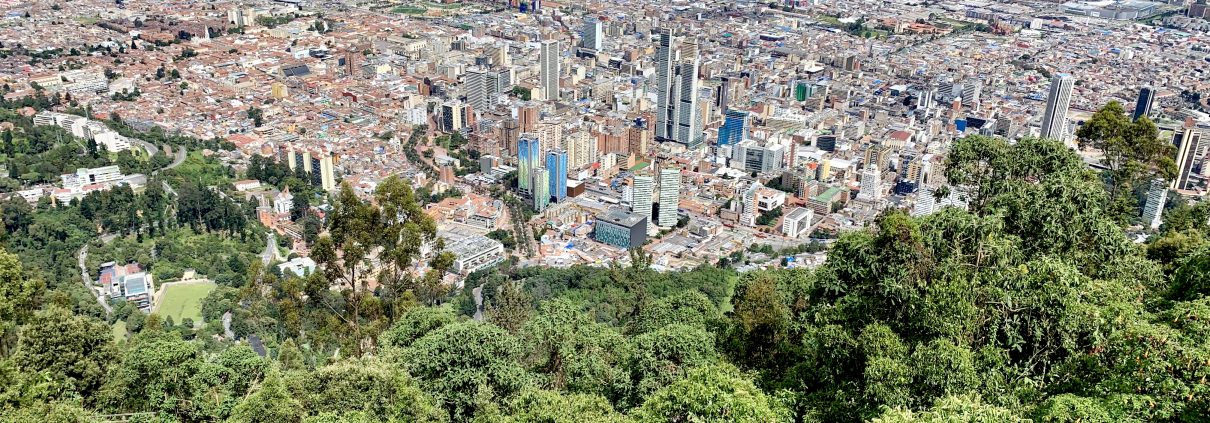Social Justice-Oriented Social Work in Bogotá
By Olivia Miller, MSW ’20
Bogotá, the Colombian capital of 10 million habitants, is a diverse city. And yet here, many languages are shared – ones born of fights for justice, of generations of discrimination, of forced displacement, of a 50-year civil war. Here, the word “diversity” is not a token term for inclusivity but rather a necessity. In a city to which many were forcibly moved (vis-a-vis a blend of armed conflict and gender-related discrimination), you can feel the palpitations of a struggle for justice. The neighborhood of Santa Fé, where I spent two months conducting fieldwork, is the heartbeat of that fight. Named the “tolerance zone” by the local government, Santa Fé is the only neighborhood in Bogotá where sex work is permitted. The (literal) writings on the walls of the streets of Santa Fé echo the community’s struggles for visibility, human rights, safety, and justice.
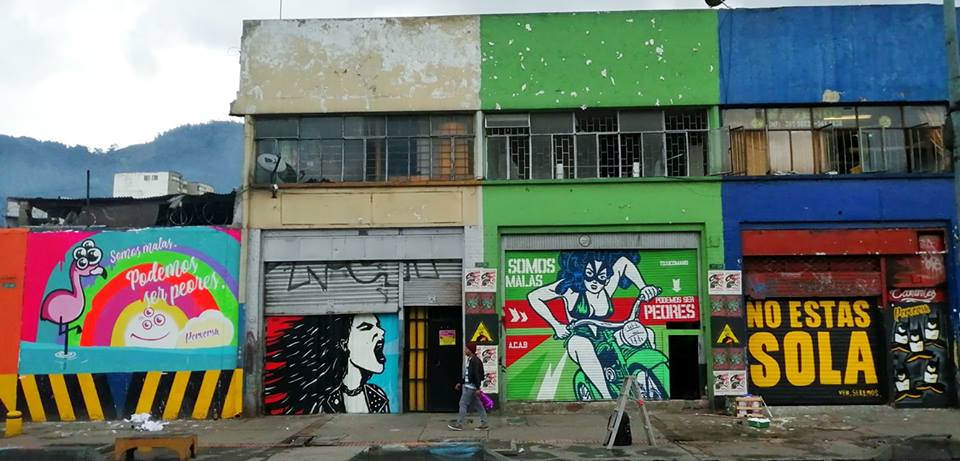
These murals, painted by artist allies of Red Comunitaria Trans, utilize some of the organization’s key phrases, such as “NO ESTÁS SOLA” (“YOU’RE NOT ALONE”) and “Somos malas, podemos ser peores” (“We are bad, we could be worse”).
Red Comunitaria Trans (Trans Community Network; RCT) is a Bogotá-based human rights collective that has underscored the need for urgent action against violence toward trans sex workers (who are also, silently, victims of state and other forms of armed violence). The trans rights organization, founded and run by local trans community leaders, focuses on issues central to the injustices and human rights violations facing the urban trans population. RCT has conducted radical street-based organizing in the heart of Santa Fe, the city’s central sex work zone, through community-driven, arts-based mobilization against structural violence for more than a decade.
The fieldwork is part of a research project I am undertaking with trans activists at RCT engaged in this social justice lucha in Bogota. Grounded in a participatory action research (PAR) framework, the research seeks to explore: what can be learned from activists on the frontlines of injustice and violence for social justice-oriented social work praxis?
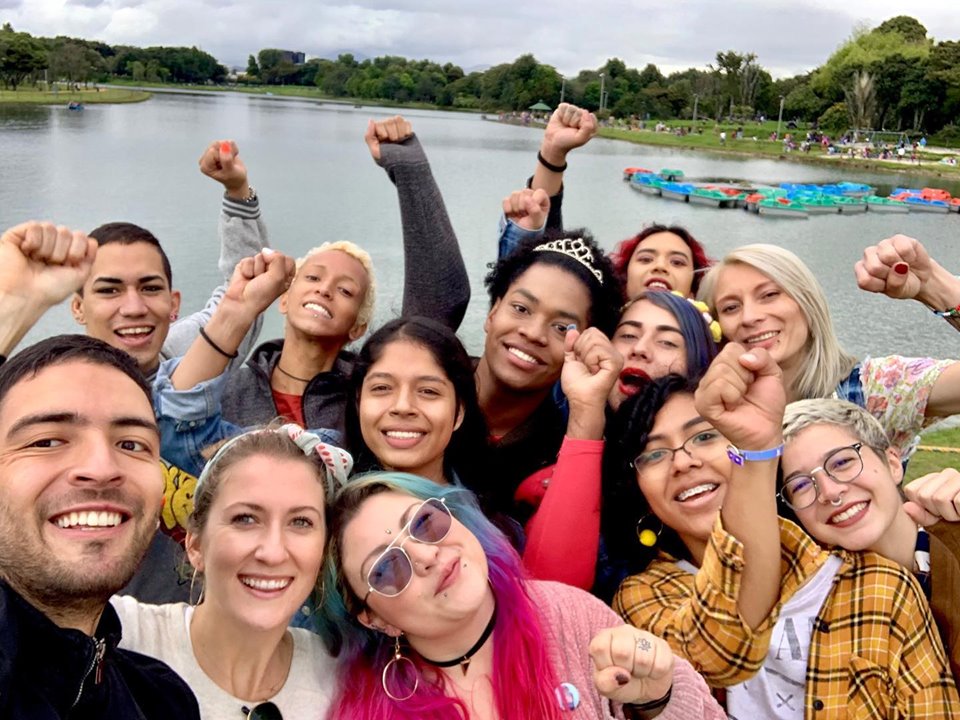
My first 3 weeks were spent in preparation of the Trans Pride March, an entirely grassroots march organized by Red Comunitaria Trans (RCT) and their cohort of allies, community partners, and friends. I decidedly spent these first weeks dedicating myself to a contributive role, recognizing the chaos of the march preparation, and putting at the center the development of my relationships with the social justice activists on the frontlines of this movement. These activities included assisting in the preparation of materials (invitations, press releases, etc), as well as attending the many events leading up to the march (the collection of which became known as part of “Trans Week,” also organized entirely by RCT), such as panel talks at the National Museum and the launch of a collection of essays by trans activists, published by UCLA, called Sueños Furiosos (Furious Dreams).
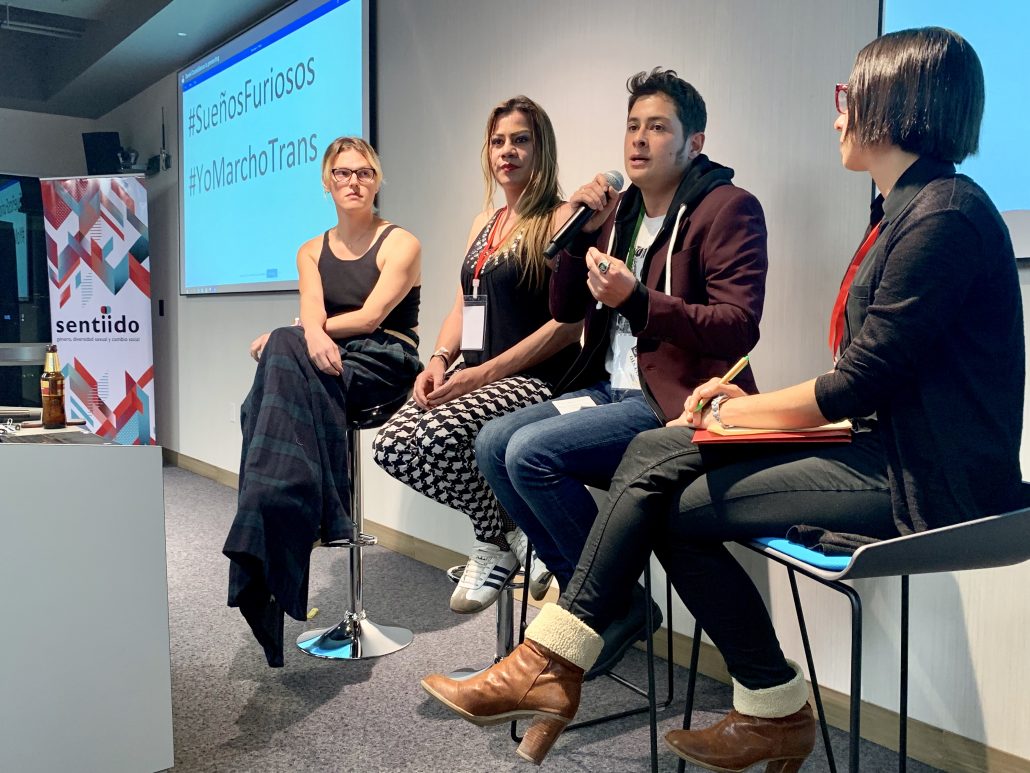 Beyond external events, RCT also hosted several in-house events leading up to the march, such as workshops for chant-writing, screen-printing, and memorial tile-painting. These events, which occupied nearly all of my time in the first weeks, served as a critical platform for my participant observation.
Beyond external events, RCT also hosted several in-house events leading up to the march, such as workshops for chant-writing, screen-printing, and memorial tile-painting. These events, which occupied nearly all of my time in the first weeks, served as a critical platform for my participant observation.
Among the activities of these first weeks was my meeting with the RCT leadership team to discuss my research objectives and create a participatory platform for collective engagement with them. Our meeting outlined the plan for interviews, focus groups, covered topics, potential action-oriented research outcomes, and ultimate goals for the research process, such as valuing and grounding community knowledge and street-based pedagogy.
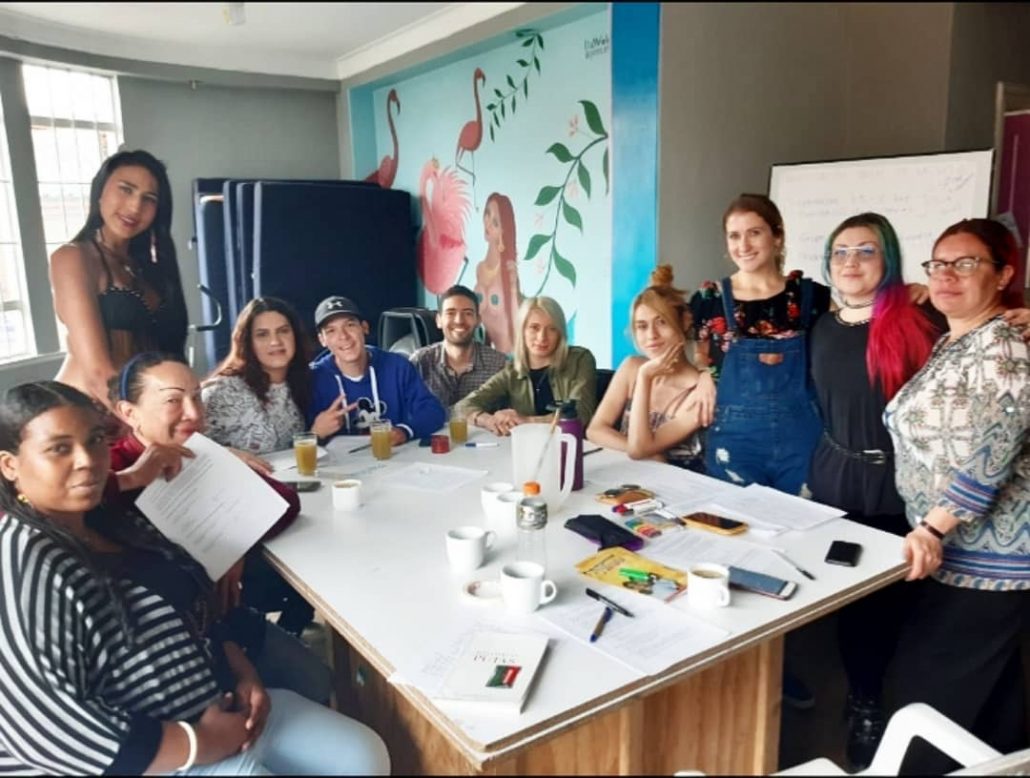
The march itself was a confluence of many forces – it was at once an homage to the fallen sisters in the struggle for justice in the streets, a celebration of trans identity, a proclamation of bodily ownership and autonomy, an exclamation of resilience, and a demand for respect. It was an event of nearly 12 hours, from midday to midnight, and over 1,500 people showed up in solidarity with the social justice champions at the helm of this radical social movement. It was a powerful event that demonstrated both the tenacity of their activism and the reach of their movement.
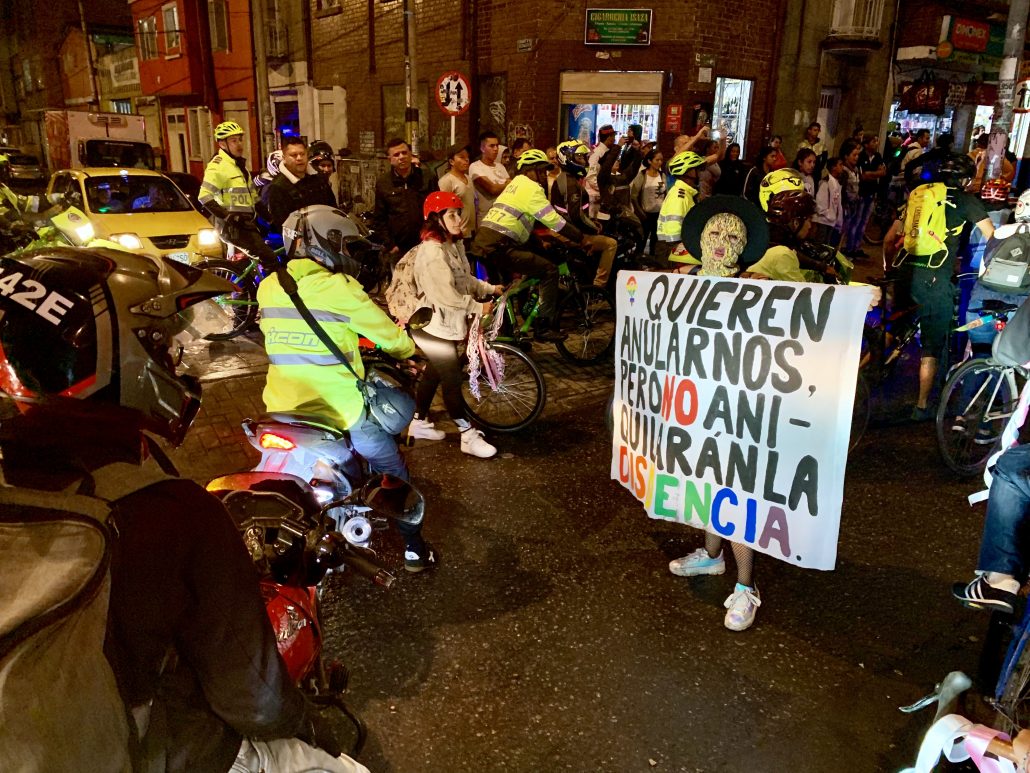
The sign reads “QUIEREN ANULARNOS PERO NO ANIQUILARÁN LA DISIDENCIA,” which translates to, “THEY WANT TO ANNUL US BUT THEY WILL NOT ANNIHILATE DISSENT.”
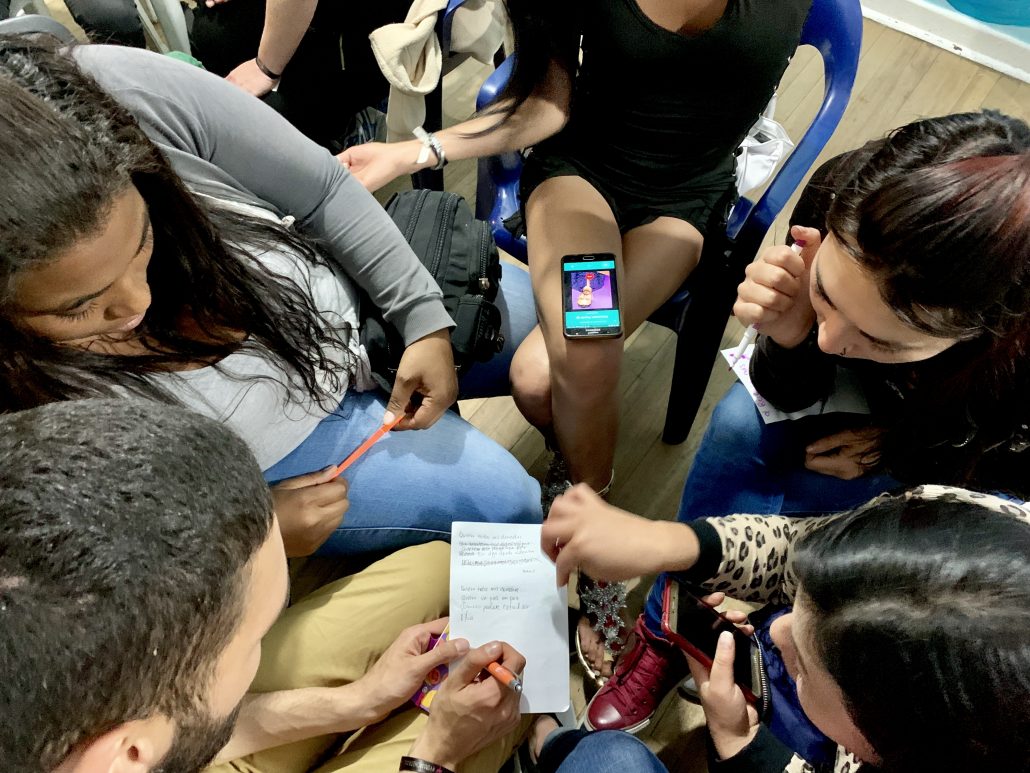
Overall, my summer fieldwork in Bogota was an incredible look into the complex and powerful world of street-connected activists fighting for their right to a safe, whole, and fulfilling life. It is my hope that this work can serve as a baseline for a future global social justice collective that leverages and channels activist strategies to fight against structural violence on an international level.

